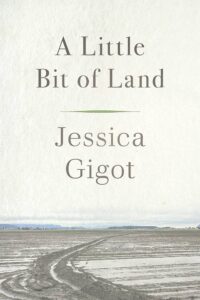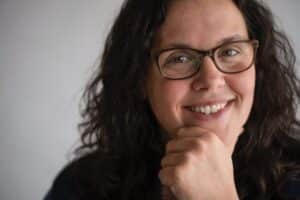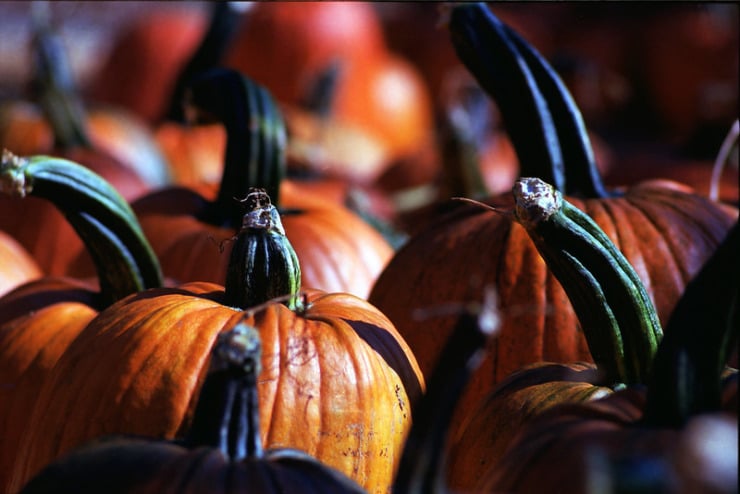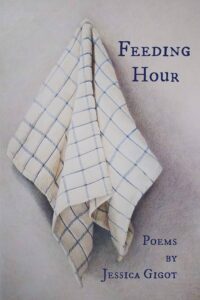
Poet Jessica Gigot draws inspiration from the land
According to the U.S. Census Bureau, one half of the adult population worked on a farm in 1870. By 1900, it was a third, and then a fifth by 1950. In 2020, less than 2 percent of adults worked on a farm. As we moved from farms and small towns to cities and suburbs, we experienced phenomenal gains in productivity and creativity. We have also severed ourselves from understanding and knowing the land.
Poet Jessica Gigot originally trained as a biologist. When she was in her 20s, she experienced a kind of call for understanding the land. Inspired by the local food movement, she spent several years as a farm intern in the Pacific Northwest. She eventually earned an advanced degree in horticulture. As her 2021 memoir A Little Bit of Land makes clear, Gigot wanted to understand farming, but she also wanted to know why people farmed. What was it that kept so many generations of farmers on the land and attracted so many newcomers?

A Little Bit of Land is beautifully written. It’s about farming and rural life, about neighbors and friends, about animals and the land. Gigot finds life in the land, and in the process, she finds herself.
And it was farming and the land that led her to poetry. Her first collection, Flood Patterns, was published in 2015. Her second collection is Feeding Hour. It’s about birth, digging, family, and mothering. And, of course, sheep. It’s also about wind, and water, and fences, and a hawthorn tree, and salmon, and recipes, and museum visits, and weasels, and all of the other facts and events of living and working on a farm.
And it’s about life and birth, and comparing pregnancy to the experience of the monarch butterfly.
These fluttering movements feel like monarchs
Trapped inside me. My stomach is a mason jar
Holding this black and orange verve.
I remember watching their wings cling
To oyamel fir trees, Abies religiosa, after two
Thousand miles of flight. Generations four
Times removed return to the same trees,
Guided by some nucleotide whispers or
A familiar smell in the wind.
You must trust the twisted route,
Over mountain tops, through canals
To find your own familiar.

Jessica Gigot
Feeding Hour was a finalist for the 2021 Washington State Book Award. Gigot’s literary work has been published in such publications as Orion, The New York Times, The Seattle Times, Terrain.org, and many others. She’s also a poetry editor for The Hopper.
And, of course, she’s a sheep farmer, a wife, a mother, and a writer. Opening the door to her life, which she does in both A Little Bit of Land and Feeding Hour, shows a love of the land and what she’s learned from it.
Related:
At Harmony Fields, a couple raises sheep, kids, and awareness of small farming
Her Deepest Ecologies: Jessica Gigot’s Substack and Podcast
Photo by DuexXFlorida, Creative Commons, via Flickr. Post by Glynn Young.
How to Read a Poem uses images like the mouse, the hive, the switch (from the Billy Collins poem)—to guide readers into new ways of understanding poems. Anthology included.
“I require all our incoming poetry students—in the MFA I direct—to buy and read this book.”
—Jeanetta Calhoun Mish
- Poets and Poems: Sandra Marchetti and “Diorama” - April 24, 2025
- Poets and Poems: Christina Cook and “Roaming the Labyrinth” - April 22, 2025
- Longfellow’s “Paul Revere’s Ride”: Creating a National Legend - April 17, 2025



Laura Lynn Brown says
What a lovely poem. Thanks for the link to her farm. I love how an academic curiosity can lead to such a change in life and such meaningful work — both the farming and the writing.
Bethany R. says
Gorgeous poem. I’m rereading these lines a few times.
“Guided by some nucleotide whispers or
A familiar smell in the wind.
You must trust the twisted route,
Over mountain tops, through canals
To find your own familiar.”
Thanks for writing and sharing this interesting post.
P.S. Hi, Laura!